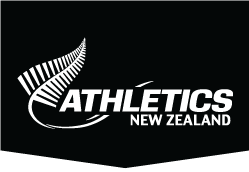Dick Quax
“If New Zealand owes its athletic revival of the 1970’s to one man more than any other, that man is Theodorus Jacobus Leonardus Quax, the son of Dutch parents who migrated to New Zealand when Theodorus was six years old,” wrote Ivan Agnew in Kiwis Can Fly (1976).
Bold on the track and briskly direct in person, Dick Quax spearheaded the 1970’s upsurge that produced such triumphs as John Walker’s world records and Olympic gold, Rod Dixon’s versatile achievements, the world cross-country team’s victory in 1975, and Quax’s own medals and records from 1500 metres to marathon. In March 1970, the 22-year-old from Hamilton began the new decade for Auckland’s track fans by beating the visiting Olympic 1500 metres champion, Kip Keino (Kenya), with a 3:57.8 mile. The highlight of that year was the Edinburgh Commonwealth Games, where in the 1500m final, Quax in typically fearless style pushed Keino all the way to take the silver medal ...
